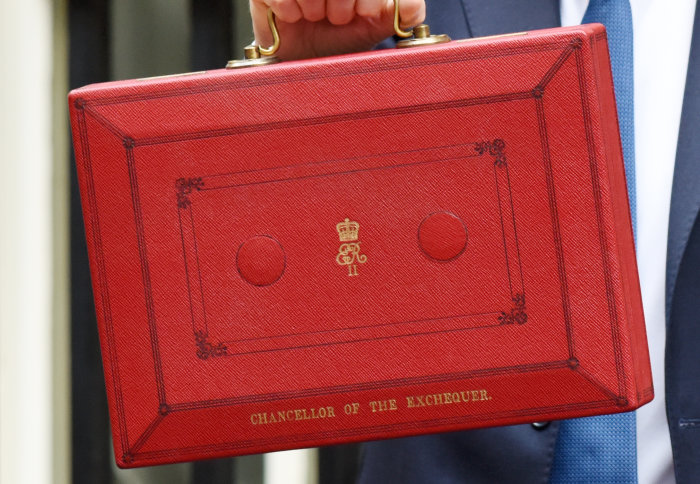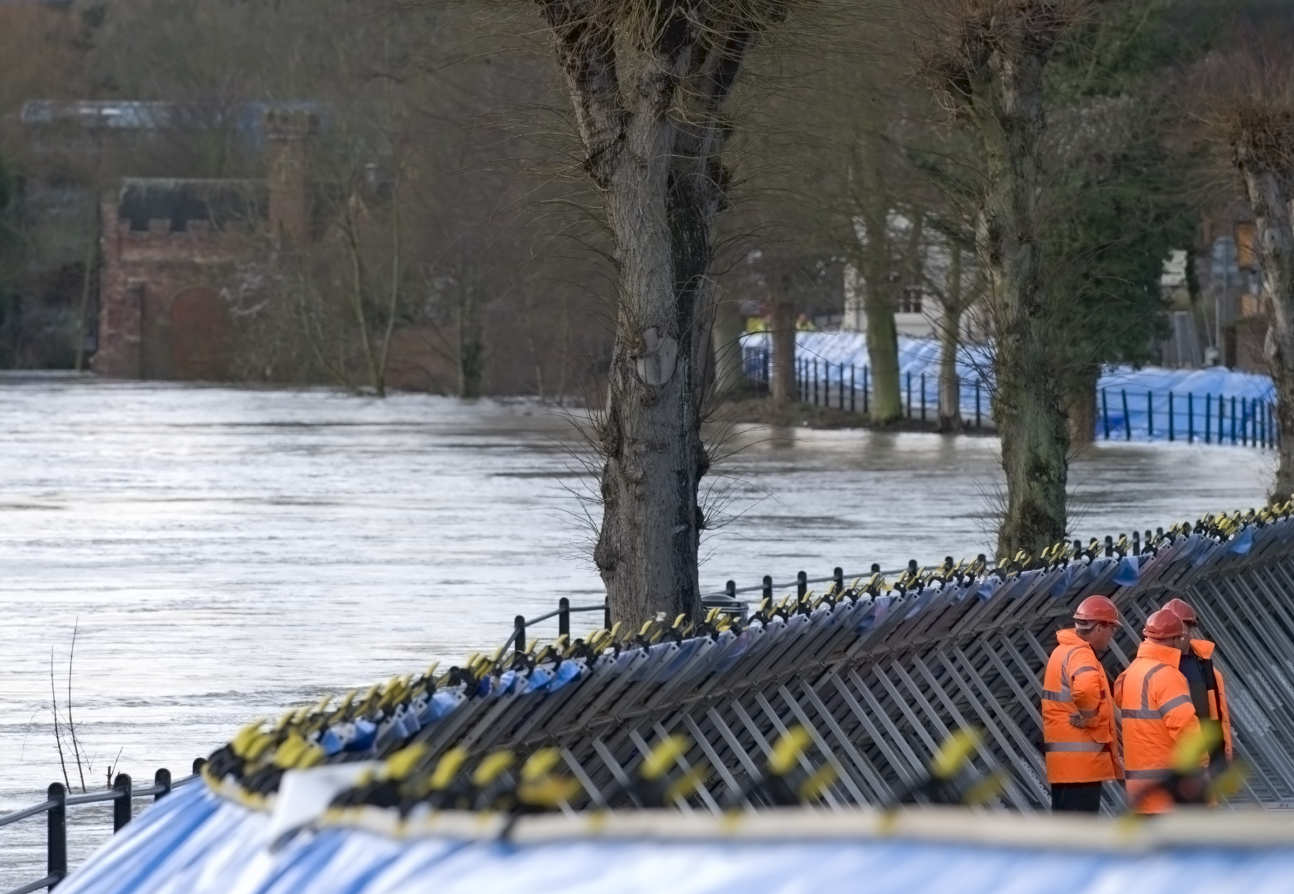UK Budget 2020: Imperial experts respond

Academics and researchers from across Imperial College London have provided analysis of the 2020 Spring budget.
This news story is being updated.
Academics from across Imperial College London have offered reactions and expert comment to the 2020 Spring budget, announced on Wednesday 11 March by Rishi Sunak, Chancellor of the Exchequer.
Among the announcements were an increase in Research and Development investment, extra funding for startups and a plastic packaging tax.
Virus budget
Dr Harjoat Bhamra of Imperial College Business School said: "This is the virus budget, not the red wall budget. There will be a 30 billion GBP fiscal stimulus to support households and firms through the coronavirus shock. The Chancellor may have said that people voted for a change in economic geography, but a budget focusing on ‘red wall issues’ will have to wait."
Professor Franco Sassi from Imperial College Business School added: "The funding made available to address the impacts of the Covid-19 epidemic is substantial and provides a strong signal to the economy and the NHS that the Government is prepared to commit the necessary resources. However, not all of the details of how the extra funding will be used have been spelled out, and a critical factor for spending measures to succeed in mitigating the impacts of the epidemic is to have appropriate regulatory and governance measures in place that would allow the extra spending to translate into changes on the ground.
"Major extra capacity will be required to deal with a surge in Covid-19 cases like the one we have seen in Italy during the past three weeks. For instance, adult critical care beds may have to be more than doubled in the country, with unprecedented organisational challenges in making the necessary staff, equipment and facilities available."
Comprehensive action
Dr Sankalp Chaturvedi of Imperial College Business School said: "The Chancellor has announced several measures to tackle the impact of the coronavirus and its effect on work-life. This is a bold budget and the series of measures taken show how serious the government is taking this unwanted health emergency. The sick pay relief is a huge step towards helping individuals and SMEs.
"This is something extremely generous for people who are not only told to self-isolate but also for people caring for those within the same household. These measures will definitely motivate individuals to self-isolate and stay home and not be worried and more importantly, spread it to other people. It’s better to be proactive with the measures than to be reactive. Extra budget for NHS is also very useful and timely." 
Dr HeeJung Jung of Imperial College Business School said: "The budget announced this afternoon emphasises the comprehensive action that the government will take on fighting COVID-19 outbreaks. £7bn will be spent to support the affected segment of the economy, £5bn will be allocated to the NHS as emergency response funds, and various VAT cuts will be implemented.
"These measures seem on par with extra spending announced in other countries. For example, South Korea, a country with a reliable healthcare system that has experienced a severe COVID-19 outbreak a month earlier, has announced £7.6B of spending to fight the virus. This represents a similar fraction of the country GDP, as what was announced today for the UK (South Korea’s GDP is about 60% of the UK’s).
"Partly to finance some of its emergency measures, the UK government will overhaul its current entrepreneurs’ relief policies, which may significantly reduce help and incentives for many aspirating entrepreneurs. Together with the ongoing economic uncertainty driven by COVID-19 but also Brexit, this budget may thus reduce future business creation."
Sustainable development
Dr Ana Mijic, Senior Lecturer in Water Management in the Faculty of Engineering said: "The new budget announcement reveals the key challenge of sustainable development – large investments in road and housing infrastructure projects that are likely to support growth and hence increase pressures on the natural environment. In the context of water management, under current regulation and standards this will highly likely lead to increased demand for water and pollution of watercourses.
"The budget-allocated funding for new flood defences will surely help regions that have suffered greatly over the past 10 years. However, until large scale planning process are analysed systemically and demand for natural resources and implications for the water cycle are addressed collaboratively by stakeholders beyond environmental and water sectors, we will keep fixing problems rather than fundamentally changing the way we try to achieve sustainable development."
Maximising ecological benefits
Dr Bonnie Waring of the Grantham Institute – Climate Change and the Environment said: "Planting trees and restoring peatland may help mitigate increases in atmospheric CO2 while protecting biodiversity. However, these nature-based solutions must be accompanied by immediate and sustained reductions in emissions, and cannot take the place of the other decarbonisation strategies mentioned in the Budget (renewable energy, zero-emissions vehicles). Moreover, to maximise ecological benefits, the UK should plant diverse mixtures of native tree species in habitats where trees are already growing."
increases in atmospheric CO2 while protecting biodiversity. However, these nature-based solutions must be accompanied by immediate and sustained reductions in emissions, and cannot take the place of the other decarbonisation strategies mentioned in the Budget (renewable energy, zero-emissions vehicles). Moreover, to maximise ecological benefits, the UK should plant diverse mixtures of native tree species in habitats where trees are already growing."
Alcohol duties
Professor Franco Sassi said: "The freeze on alcohol duties effectively amounts to a tax cut on alcohol products, because inflation erodes the impact of the tax over time. The governments’ priority seems to protect and promote the alcohol beverage business, based on the way the measures have been framed. The Chancellor has gone out of his way promising to fight US tariffs on UK alcohol products, which is not strictly a budget  measure.
measure.
"If any concerns are signalled about alcohol consumption, they are in connection with the environmental impacts of the distilling business. Any health concerns are ignored. The extra health care expenditure on alcohol-related conditions arising from the freeze will be in the order of tens of millions of pounds each year in the years to come. Yet, it was underlined with pride that all alcohol duties have been frozen “for only the second time in almost 20 years."
Zero-carbon Britain
Dr Ajay Gambhir, Senior Research Fellow at the Grantham Institute – Climate Change and the Environment said: "There are some promising announcements in the Budget which show the government understands the direction of travel towards a zero-carbon Britain. For example, it’s high time we demonstrated Carbon Capture and Storage (CCS), particularly in industrial processes, at large scales as soon as possible, and there are steps to support CCS in at least two sites in the UK by 2030. The Low Carbon Heat Support Scheme will also hopefully provide a much-needed acceleration to the very sluggish rate with which the UK is decarbonising its housing stock, though details remain to be seen. 
"In the transport sector, the extension of the Plug-in Car Grant scheme to 2022/3 is welcome, as well as its broader scope to include vans, taxis and motorcycles, supported by investment in a fast-charging network. But the government cut the plug-in grant 18 months ago, and a return to the previous level of £4,500 per vehicle, or even better an even greater level of support, would have been far more effective in jump-starting the electric vehicle market in the UK. In that sense, other countries like Norway continue to do much better than us."
Research and development
Professor Markus Perkmann of Imperial College Business School said: "The government plans to almost double the public investment in Research & Development. This will more than compensate for the loss of EU funding for research of which the UK is a large recipient, and indicates that the government is keen to maintain and expand its commitment to the UK science base. There is a commitment to establish a new type of “moonshot” funding agency, with details still to be worked out, particularly to what degree it will move independently from the current set-up of government research funding."
Dr Ralf Martin, Associate Professor of Economics at Imperial College Business School, said: “The Chancellor wants to spend more on R&D and preferably not in London. However, to innovate you need innovators and most are in and around London.
“Crucially, London also generates more knowledge spillovers benefiting the UK.
“To "level up" we should focus on low productivity regions. But London also generates a lot of knowledge spillovers for lagging UK regions. Every 20km square in central London generates more than $500MM worth of knowledge spillovers over 10 years for lagging regions.
“However, Cambridge is doing even better. Hence, maybe a bit less funding for London and a bit more for Cambridge?”
Article text (excluding photos or graphics) © Imperial College London.
Photos and graphics subject to third party copyright used with permission or © Imperial College London.
Reporter
Joanna Wilson
Communications Division